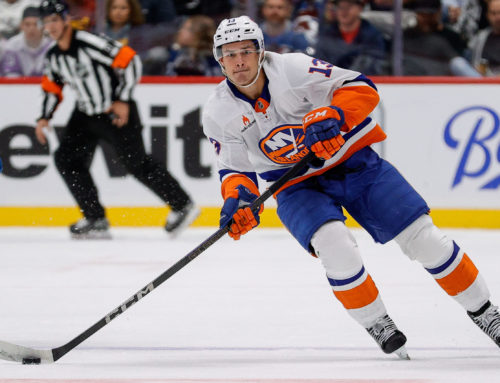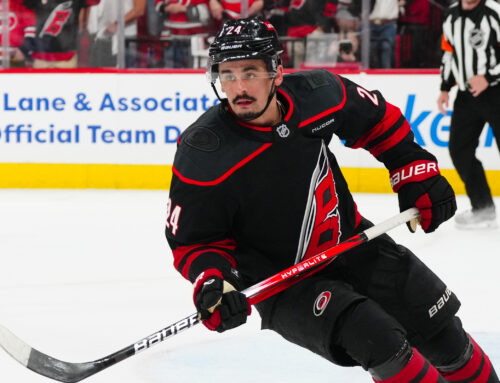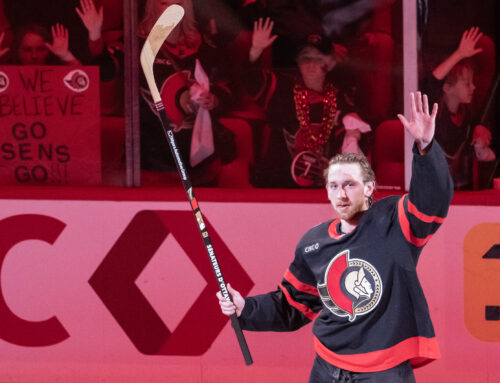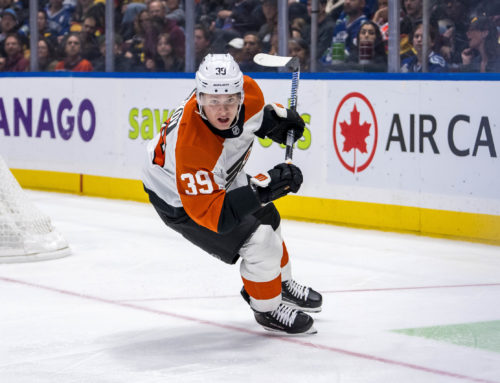
The subject of supplementary discipline and just what constitutes a penalty in the playoffs are hot topics right now. Before I get started here, I have to say that I have the utmost respect for the NHL and the great job the officiating crews do consistently applying the rules game in and game out (no really, I HAVE to say that or Gary Bettman will fine me $20). I truly believe the NHL’s Commissar of Crime, Colin Campbell is in a no win situation and is trying his best to be consistent and fair.
Every suspension and non-suspension is compared to similar incidents that have taken place in the past and are scrutinized endlessly by media and hockey fans alike. Campbell has the unenviable task of trying to make the “right” decision while being fully cognizant that this great sport is a man’s game and violent offences are part of its legend and lore.
With this in mind, let’s have a little fun with the NHL rules and supplemental discipline process.
The original NHL rule book was not quite as lengthy as it is now. Many people don’t know that the first ten rules were written on two thin stone tablets (commonly thought to have led to the creation of the first shin pads), eerily similar to the Ten Commandments; you know, thou shalt not draweth crimson with thy wooden staff, lest ye shall spendeth five minutes on the rack or five lashes. Oh my, how we have evolved.
While the current playoff version is much lighter fare than the regular season rule book and it reads much like a comic book. Pow, splatt, boff, whamm, two minutes for nearly killing your opponent and four if you draw blood. Five minutes for anything requiring a stretcher, surgery or if the Commissioner’s daughter happens to be in attendance.
The National Hockey League has a notorious history of losing certain pages of the rule book the deeper the playoffs go. Situational rules are generally applied in the playoffs. As the periods draw down, a proportionate number of pages magically disappear from the rule book.
Here are some excerpts from the NHL’s version of Coles Notes:
11.1.1 When in doubt, think about blowing the play down early. It can take a long time for a referee to actually blow the whistle because it is usually buried so far down in their pocket during the playoffs that it can be difficult to reach quickly.
11.1.2 If the home team is trailing by two goals or less in the last ten minutes of any period, any infraction by the visiting team shall be penalized, regardless of how the game has been called up to that point.
11.1.3 Late in the third period, only if a scoring chance is negated will there be a penalty call, unless rule 11.1.2 is in play.
11.1.4 The more important the game, a proportionate number of calls will be overlooked. A serious looking injury must occur before a penalty is called in overtime and only if a grievous injury happens, will a penalty be called once the second overtime period has commenced. (Wouldn’t want to influence a game by calling the rules now would we!?)
11.2.2 Under no circumstances can a diving penalty be called without a corresponding obstruction foul being called to offset the dive.
11.2.3 If one of the referees makes a bad call, an “even up” call during the subsequent power play is encouraged.
11.3.1 If a goaltender is run while in his crease or cross-checked anywhere near his head, neck or throat area, no penalty shall be awarded unless the goaltender flops around on the ice, thereby drawing one of the on-ice official’s attention. No harm, no foul applies.
11.4.3 A slash will not be called during the playoffs unless either player’s stick breaks. A little known fact is that the composite sticks the majority of NHL players use are for the player’s own safety, sort of like a collapsible steering column on most cars. This way, players are less likely to be hurt when they are slashed or cross-checked in the head/neck region by their NHLPA brethren.
An unnamed source has provided me with a copy of the NHL’s Guide to Supplemental Discipline (aka Sliding Scale of Justice). If the offending player receives:
Less than eight minutes of ice time per game – A suspension is very likely as it helps send a message to the more talented players to toe the line.
Between eight and fifteen minutes of ice time per game – Optional two to six game suspension depending on severity of injury to victim and history of offending player.
Fifteen minutes of ice time or more – Tread very carefully here, DO NOT set a precedent. Contact star players on their cell phone, give him a really good tongue lashing and ask him politely not to do it again this season. If the replays look bad enough and the media thinks a lengthy suspension is in order, suspend the player one game or two games if he is a repeat offender and fine the player the maximum allowable, a whopping $2500 US.
Let me put that fine into perspective. Take a player who takes home a large paycheck, oh let’s say Chris Pronger, who makes $6.25M per season. Will $2500 make much of a dent in his disposable income? You decide. An equivalent fine for a person making only $50,000 per year would be $20.
Having officials focus on certain infractions, such as restraining fouls, is like having the police focus on littering and jay walkers, while violent crimes are taking place.
Certainly the player’s attitudes towards each other are not moving in the direction of respect, given that there seems to be an increase in the number of agitators and instigators around the league. Dangerous and unnecessarily violent acts are something that the NHL must address.
I believe that the only way to stop serious offences is with serious suspensions, even if the offenders are superstars. Unfortunately, the league seems to have trouble finding any consistency in this area. Here’s hoping there are no more suspension worthy acts during the rest of these playoffs.





 BUF
BUF NYR
NYR CHI
CHI WSH
WSH CBJ
CBJ S.J
S.J VAN
VAN PIT
PIT ANA
ANA MIN
MIN
